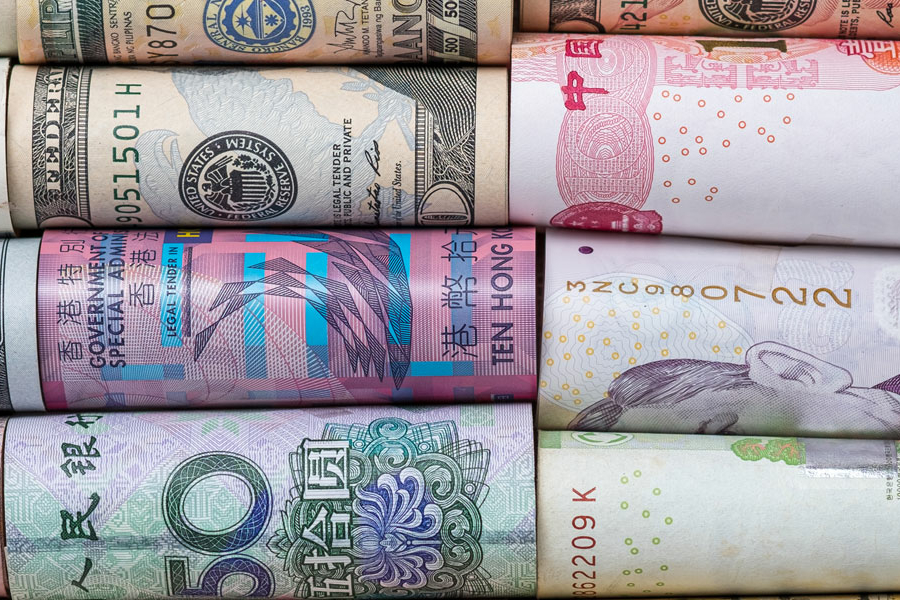Foreign direct investment reviews increasingly impact cross-border deals
Continued emphasis on FDI around the world, particularly in the US and Europe, creates additional challenges for investors

The past two years have witnessed significant geopolitical fracturing and macroeconomic difficulties that continue to hamper certain dealmaking. Several sectors have posted transactional lows throughout 2023, and persistent inflation and high interest rates look set to remain in place for now. Economic decoupling and growing global regulations also create transactional hurdles, while China's slowing economy and now the Israel-Hamas war add to a steady sense of market unpredictability.
And yet, with volatility comes opportunity, such as infrastructure and renewables projects, growth in the semiconductor industry, and the rise of private credit. As many companies and investors in Taiwan are discovering, economic or regulatory setbacks are an invitation to think innovatively and to recalibrate their approach. With the right information and careful planning, they can position themselves for success now and in the future.
Following our 18th Annual Taiwan Roundtable Series in September, we hope this year's report for Taiwan-focused companies and investors provides helpful guidance in a rapidly evolving political and economic landscape.
We begin with a look at the continued proliferation of foreign direct investment (FDI) regimes in the US and the European Union. The Committee on Foreign Investment in the United States (CFIUS) has ramped up its activity to an all-time high, while EU member states continue to implement, refine and expand their regimes. Many FDI focus areas overlap with those of Taiwanese companies—technology in particular—meaning early-stage analysis is critical in this arena.
We then analyze the impact of forum selection in contracts with mainland Chinese (PRC) companies. Despite the tensions between PRC and Taiwan, their economies remain inextricably intertwined, so Taiwanese companies should consider how the provision of "interim measures" in Hong Kong arbitration can benefit their business.
Next, we provide an overview of the EU's new Foreign Subsidies Regulation (FSR), which scrutinizes foreign financial contributions received by companies engaging in M&A and public tenders in the EU, and grants the European Commission the power to investigate any other potentially distortive market situation. Taiwanese companies should be aware that the FSR casts a wide net and could also encumber merger control and FDI filings.
We then turn to the growing popularity of the US International Trade Commission (ITC) for trade secrets litigation. The ITC's unique global reach means trade secret owners can make a claim of misappropriation on any product that enters the US, even if the trade secret and alleged misappropriation are entirely extraterritorial. The risk of these claims has broad implications, especially for foreign companies trying to diversify and broaden their global footprint.
Our transaction-focused piece looks at the evolution of M&A, debt finance and investment funds practices in a tough macroeconomic environment. Certain technology and renewables remain attractive for M&A and private equity, while local consumer brands are considered the next target of credit investors, and the funds space is seeing growth in the secondaries market and NAV financings.
Aligning with the Roundtable Series' "clubs and fences" theme, we consider trade and sanctions through this framework. Taiwanese companies have the difficult task of balancing often-competing interests in Asia-Pacific and the West, but they will benefit from taking advantage of regional trade clubs and nimbly navigating regulatory fences that include tariffs, sanctions and export control.
Lastly, we examine two major proposed changes to US antitrust policy by the US Federal Trade Commission (FTC) and the Department of Justice, Antitrust Division: the FTC's proposed ban on non-compete clauses and both agencies' radical proposed changes to the Hart-Scott-Rodino Form. One key takeaway examines the possible use of employee NDAs to protect company information.
We look forward to discussing these and other issues with you.
Continued emphasis on FDI around the world, particularly in the US and Europe, creates additional challenges for investors

Provision of "interim measures" strengthens Hong Kong's position as a level playing field in arbitration against PRC counterparties

The bloc's new scrutiny of foreign financial contributions poses regulatory hurdles for Taiwanese investments in M&A and public tenders in the EU

The growing popularity of the ITC as a regulatory venue with global reach has implications for Taiwanese trade secret owners and investigation targets

M&A, debt finance and investment fund actors seek alternative routes to dealmaking in the face of a dim macroeconomic outlook

The evolving trade and sanctions landscape reflects a new global regulatory paradigm

US antitrust agencies step up enforcement with proposed policy changes that create uncertainty and new regulatory burdens


Provision of "interim measures" strengthens Hong Kong's position as a level playing field in arbitration against PRC counterparties
Responding to growing geopolitical tensions between Taiwan and mainland China (PRC), Taiwanese businesses are considering ways to diversify their operations away from their largest trading partner. In 2022, China accounted for a quarter of total trade and more than 20 percent of imports in Taiwan, while the US came in second, with nearly 13 percent of Taiwan's total trade and 10 percent of imports—a 19 percent year-on-year increase that underscores the trend. Remarking on the effect China's troubled economy could have on Taiwan, Hsiao Bi-Khim, Taiwan's ambassador to the US, told Bloomberg in September, "[Taiwanese] companies are thinking about how to position assets in a way that best protects their company interests."
In spite of this diversification trend, Taiwan's long-term business interests will remain entwined with PRC companies. To best position themselves for success in these relationships, Taiwanese companies should consider the business advantage that Hong Kong arbitration clauses offer when doing business in China.
In a move that reaffirms Hong Kong's position as the preeminent gateway to Mainland China, more PRC companies are now insisting on Hong Kong arbitration clauses in their contracts. The region is considered a more attractive arbitration venue for foreign companies operating in the PRC, and the preference it is now being shown marks a U-turn on the prior trend of moving proceedings to alternative regions, notably Singapore. Some Chinese companies are also establishing operating subsidiaries in Hong Kong in order to transact with their foreign counterparts.
Taiwanese companies should familiarize themselves with arbitration developments in Hong Kong in recent years, specifically two that relate to "interim measures." These little-known but valuable instruments strengthen Hong Kong's position as a level playing field for arbitration, especially against PRC counterparties.
Interim measures are important for their ability to expedite the ultimate resolution of a dispute. This is because contemporary litigation and arbitration, in most legal systems, has procedural safeguards that may delay final decision-making, unless a tribunal is able to grant interim measures.
The two relatively new methods for obtaining interim measures in Hong Kong, through the Mutual Arrangement and the China International Commercial Court (CICC), allow parties to overcome procedural delays and thus obtain swifter resolution.
Notably, Hong Kong is the only place outside mainland China where Chinese courts will support arbitrations with the provision of interim measures.
The Mutual Arrangement—also known as the Arrangement Concerning Mutual Assistance in Court-ordered Interim Measures in Aid of Arbitral Proceedings by the Courts of the Mainland and the Hong Kong Special Administrative Region—came into force on October 1, 2019.
Several signatories to the founding treaty of international arbitration, the New York Convention, believe that only final awards, not interim ones, are binding. This currently includes China, but the Mutual Arrangement bridges the gap by allowing Chinese national courts to grant court-ordered interim measures for Hong Kong–seated arbitrations. These measures may include conduct preservation, asset preservation and evidence presentation.
The Mutual Arrangement is thus far considered an unqualified success. According to the Hong Kong International Arbitration Centre (HKIAC), PRC courts have approved 100 applications for interim measures since October 11, 2023, effectively preserving assets totaling RMB 27.4 billion (US$3.8 billion). The vast majority of applications, 94 in total, involved the preservation of assets, while two were made for preservation of evidence, and four were for the preservation of conduct. To date, only a small number of applications have been rejected, including one that was rejected because it concerned an ad hoc arbitration, which does not qualify under the Mutual Arrangement.
Since June 2022, parties in arbitration at the HKIAC can apply to the CICC for mainland Chinese interim relief and enforcement. Applications are made directly through a "one-stop" mechanism, which is currently only available to parties at the HKIAC.
Unlike the Mutual Arrangement, which requires applications to be made to the relevant Intermediate People's Court and is better suited to cases where assets are located within one city or province, the CICC is centralized and has the power to order the preservation of assets across mainland China. The court only accepts cases that exceed CNY 300 million, have a significant impact on the mainland and qualify under the definition of international commercial cases.
The CICC presents several other advantages. Since the court is part of the Supreme People's Court of the PRC, the judges are highly qualified, experienced in international arbitration, and proficient in both Chinese and English. Additionally, the CICC does not require parties to translate documents into English, which is necessary for Mutual Arrangement applications. Lastly, the court has also provided for a streamlined process of proving foreign law.
Given the importance of interim measures, it is important to structure any arbitration clauses carefully in order to benefit from the novel interim measure mechanisms when entering into a contract with a PRC counterparty. This is vital to ensure a level playing field when cases of potential arbitration arise against PRC counterparties.
White & Case means the international legal practice comprising White & Case LLP, a New York State registered limited liability partnership, White & Case LLP, a limited liability partnership incorporated under English law and all other affiliated partnerships, companies and entities.
This article is prepared for the general information of interested persons. It is not, and does not attempt to be, comprehensive in nature. Due to the general nature of its content, it should not be regarded as legal advice.
© 2023 White & Case LLP